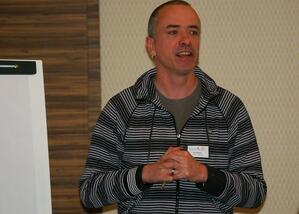Neil Adams worked a lot in the Baltic States when he was a consultant based in Belgium for many years. He has extensive experience of regional development and spatial planning at national, regional and local levels in the Baltic States. Adams has been back in the UK and worked at LSBU since 2005. Currently he is also doing some consultancy work for the World Bank advising them about the regional development strategy for the Lubelskie Region of Poland. In the coming two to three months he will be giving papers at conferences in Latvia again and also in Germany.
How did you hear about ICN?
What in your eyes is special about the Innovation Circle Network?
Where do you see more potential for ICN?
What do you think about Dr. Vahur Made’s quote: “It would be more useful to focus on northern Europe and perhaps combine northern Europe and the Arctic regions […]. The notion of the Baltic Sea is already outdated.”
In reality the challenges we are facing today do not restrict themselves within neat borders and many actors are active in different knowledge arenas at different spatial scales and in different contexts. I strongly support many of the initiatives undertaken in the context of the Baltic Sea Region and feel that they retain their value even if people talk about other levels or spaces. The geo-political characteristics of the wider region mean that high level politics and relations will remain crucially important. However, actors at the lower levels can still make a valuable contribution to breaking down certain barriers and to policy development and practice by sharing experiences and mutual learning in ongoing and emerging co-operation initiatives. We may be able to do little to influence high level international politics but lower level initiatives can provide effective arenas within which common challenges and appropriate solutions can be discussed and debated. The most important thing as far as I am concerned is that statements like this are valuable as they generate discussion and debate and get people to think about old problems in new ways, to think outside the box and this potentially stimulates creativity.
Last year Neil Adams published together with Giancarlo Cotella and Richard Nunes the book: “Territorial Development, Cohesion and Spatial Planning - Knowledge and policy development in an enlarged EU”. Right now he is working on a paper that deals with the dramatic spatial development trends that have contributed to a unique territorial governance landscape among the Baltic States. The paper argues that the ability of diverse communities of actors to influence stability and change in the policy development process is possible only after having acquired the powers to shape or frame new ‘policy images’.”
Foto: Neil Adams at the TiF workshop “How to link regional scenarios and new narratives” in Riga

